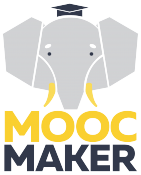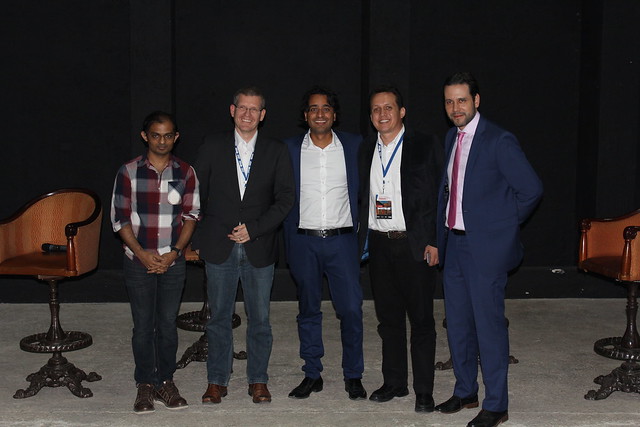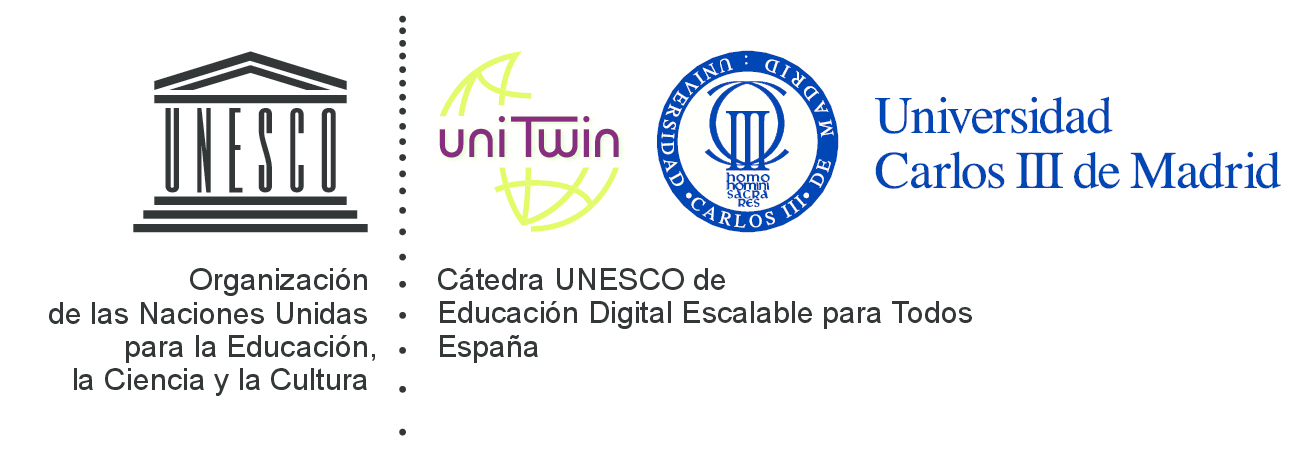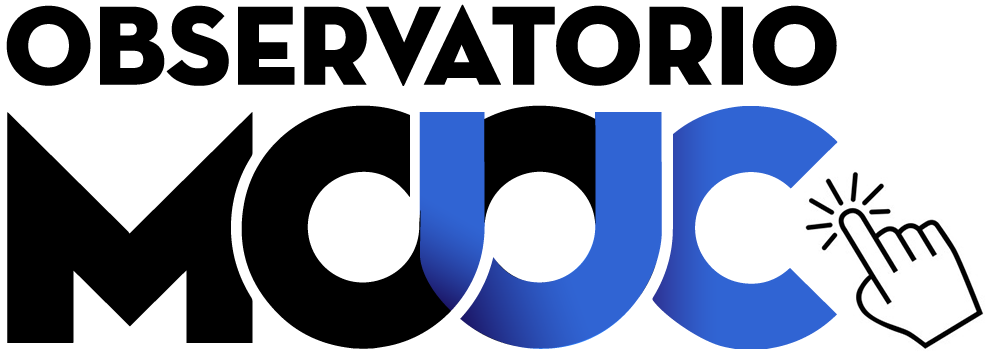On November 16 and 17 in Antigua, Guatemala, the 1st. International MOOC-Maker Conference, was organized by Universidad Galileo.
The event brought together an elite group of keynote speakers, including Armando Fox PhD Professor and advisor to MOOCLab at UC Berkeley, Ajay Kapur Co-Founder and CEO of Kadenze, Johannes Heinlein Vice President of Strategic Alliances at edX, Dhawal Shah Founder and CEO of Class Central, and Dana Doyle PhD Director of the Massachuset MITx Program.
The opening of the conference was given by Rocael Hernández PhD, Director of the GES department in Universidad Galileo and Technical Coordinator of the MOOC-Maker project. The first main conferences were presented by Armando Fox “Save the World Project by Project” and Ajay Kapur “Creative Digital Learning for the Masses”.
During the conference break, participants had the opportunity to get to know the Projects Showcase, which was given by students from the Faculty of Systems Engineering, Informatics and Computer Science, Universidad Galileo.
The first day of the event ended with a panel discussion The Future of Education: Technology, Strategies and Challenges, which was moderated by Rocael Hernández PhD.
Panelists were Johannes Heinlein (edX), Dhawal Shah (Class Central), Ajay Kapur (Kadenze) and Juan Pablo Pérez Molina (Telefónica Educación Digital Colombia, MiriadaX).
The second day of the event began with the main lectures presented by Dhawal Shah “The evolution of MOOCs” and Johannes Heinlein “The digital education disruption”.
The scalability experiences on MOOCs platforms were presented by Juan Camilo Montoya from EduNext and the MOOC experience in Latin America by MiriadaX was shown by Juan Pablo Pérez.
In the second panel “Experiences of professors and MOOCs”, participated Oscar Jerez Yañez PhD from Universidad de Chile, Iván Echeverría PhD and Jorge Samayoa PhD from Universidad Galileo, MSc. Mario Fernando Solarte from Universidad del Cauca, MSc. Mariela Román from Universidad Panamericana and Edgar González PhD, Director of the IDB program of the Inter-American Development Bank. The panel was moderated by MSc. Miguel Morales Director of the e-Learning area, Universidad Galileo.
The third panel “Experiences of Technological Innovation for students” was moderated by Carlos Alario-Hoyos PhD from Universidad Carlos III de Madrid and participated as panelists MSc. Adrian Catalán, MSc. Ali Lemus and Oscar Rodas PhD from Universidad Galileo.
In the event attended more than 150 participants, who had the opportunity to participate in the workshops:
- Clever Strategies to Blend Google Tools with your MOOC
- Fundamentals for creating accessible content in a MOOC
- The Creative Challenge of Making Good Video Lessons for a MOOC
The second workshop, originated from the synergy that exists between the MOOC-Maker project and the ACAI-LA project “Adoption of approaches to quality, accessibility and innovation in higher education in Latin America” with the aim of promoting virtual education especially in Latin America. The workshop was given by Héctor Amado PhD, Director of the Research Area of the GES department in Universidad Galileo.
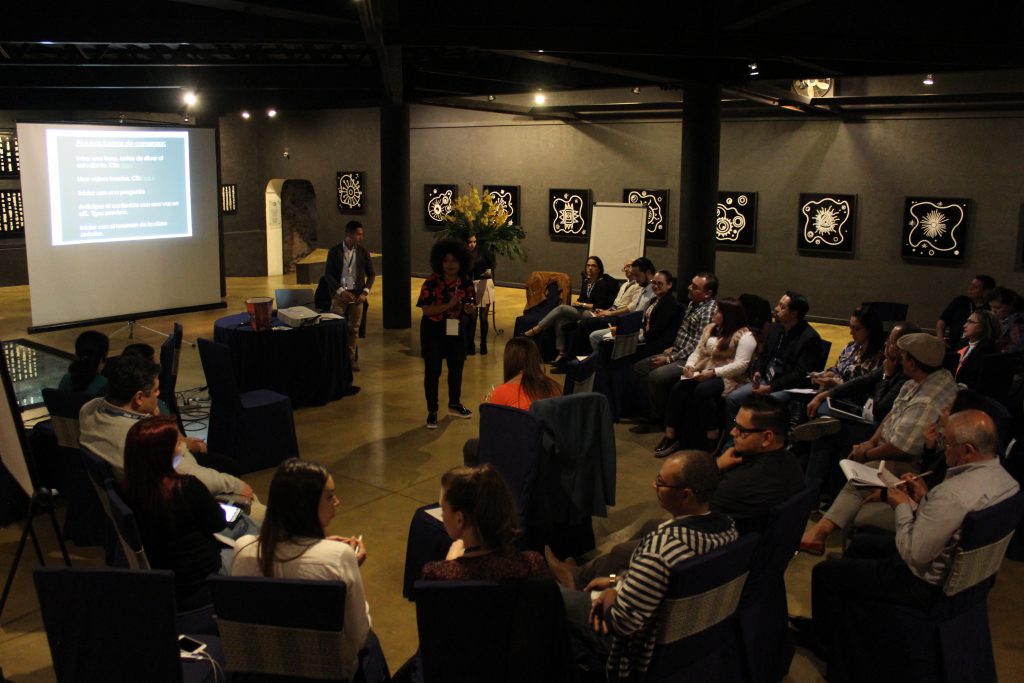
The conference Robots and Music and Cultural Inspired Technology was presented by Ajay Kapur from Kadenze and Dana Doyle from MITx presented “Managing the pipeline, SPOCs, and the Micromasters non-edx support solution”.
Before finishing the event, Teresa Luna PhD, Dean of the Engineering Faculty from Fundación Universitaria Católica del Norte, announced the 2nd. International Conference MOOC-Maker to be held in Medellín, Colombia on October 11-12, 2018 and António Moreira Teixeira PhD, professor from Universidade Aberta in the Department of Distance Education and vice president of EDEN European Distance and E-learning Network, announced the MOOC-Makers Global Symposium to be held on 17 April 2017 in Lisbon, Portugal.
International experts had the opportunity to present their research related to virtual education in parallel sessions during the event.
Rocael Hernández PhD closed the 1st. International conference MOOC-Maker thanking the lecturers, MOOC-Maker project partners, participants and support staff of the GES department and from different areas from Universidad Galileo who supported the event to make it a success.


